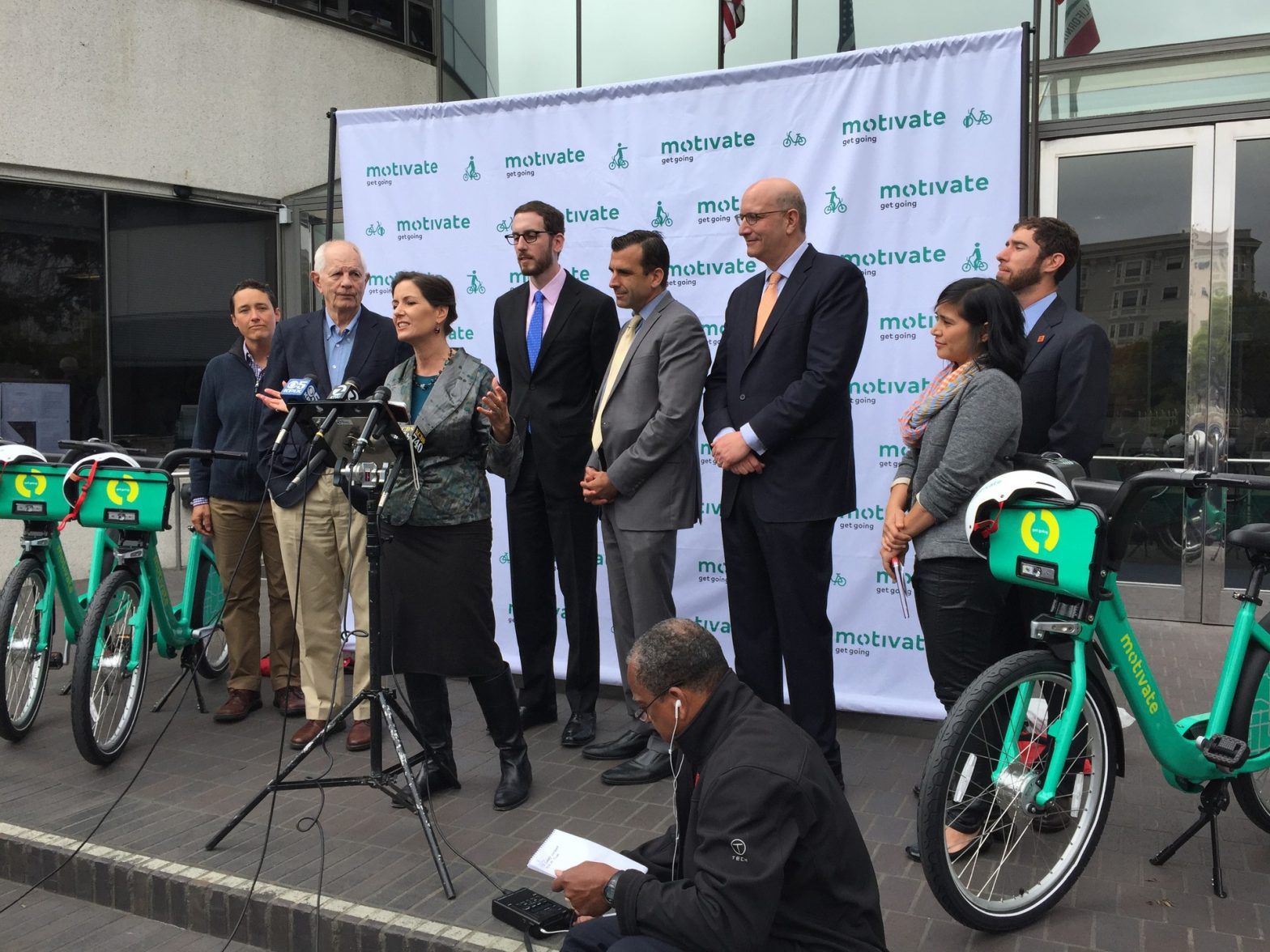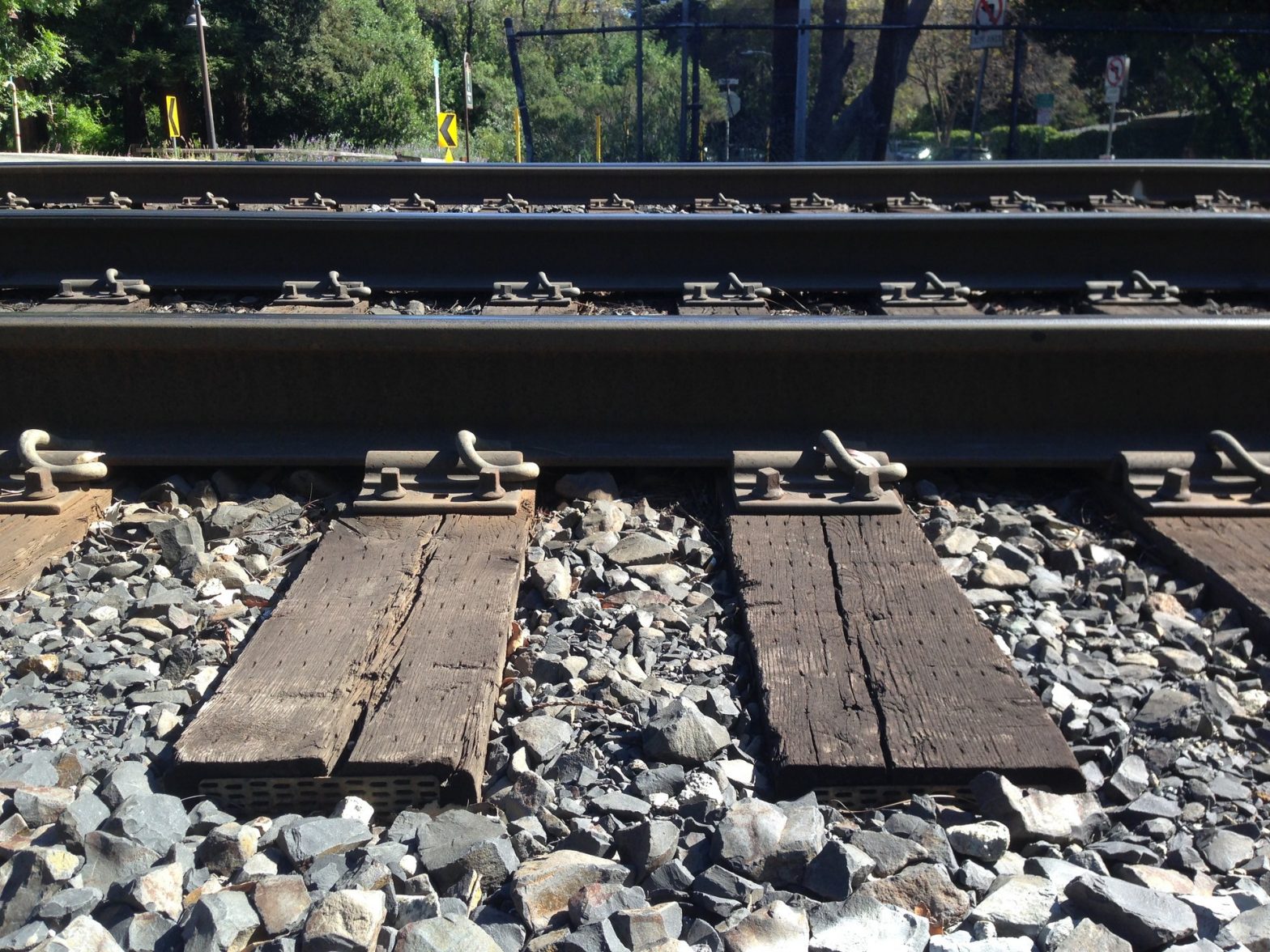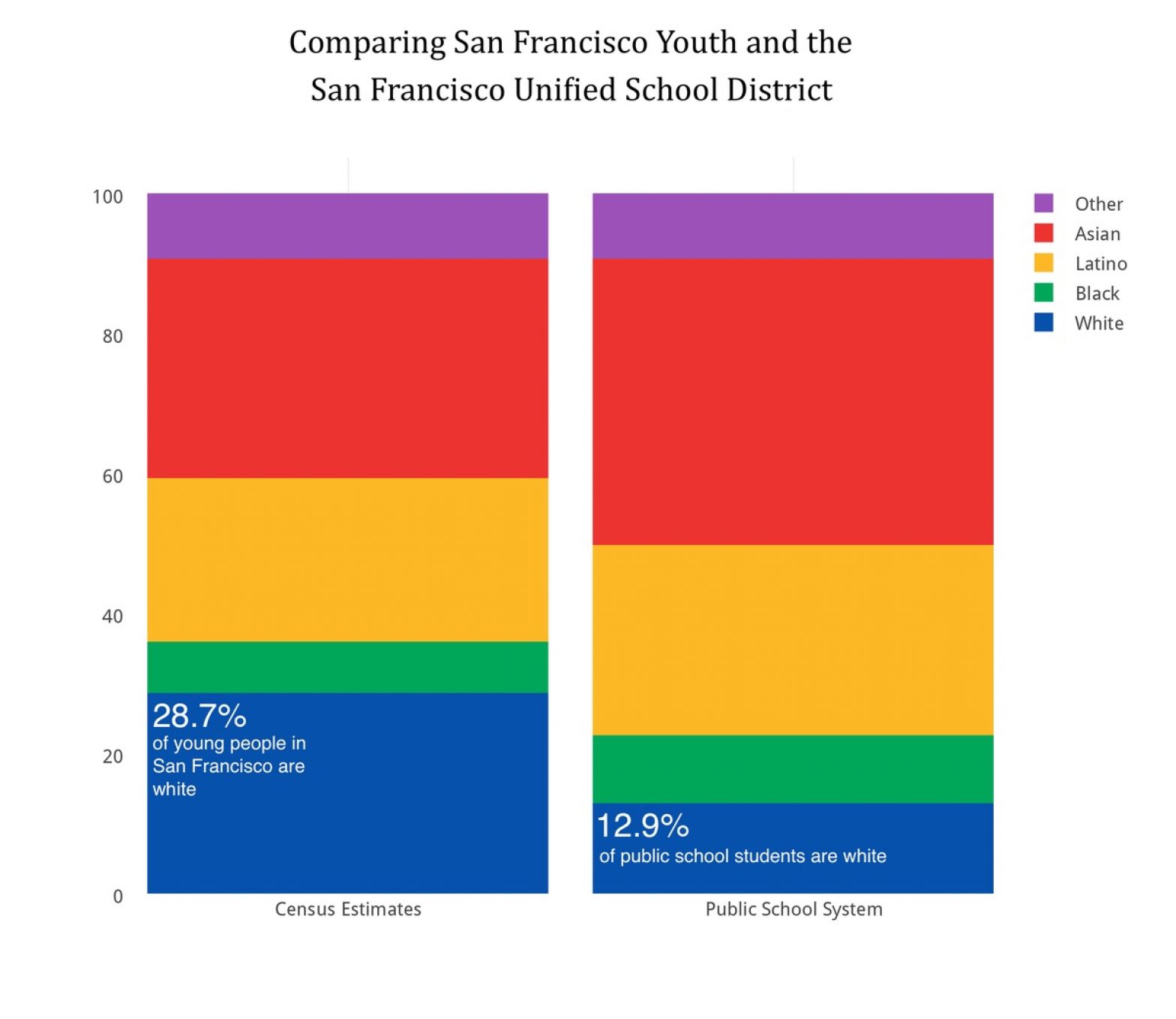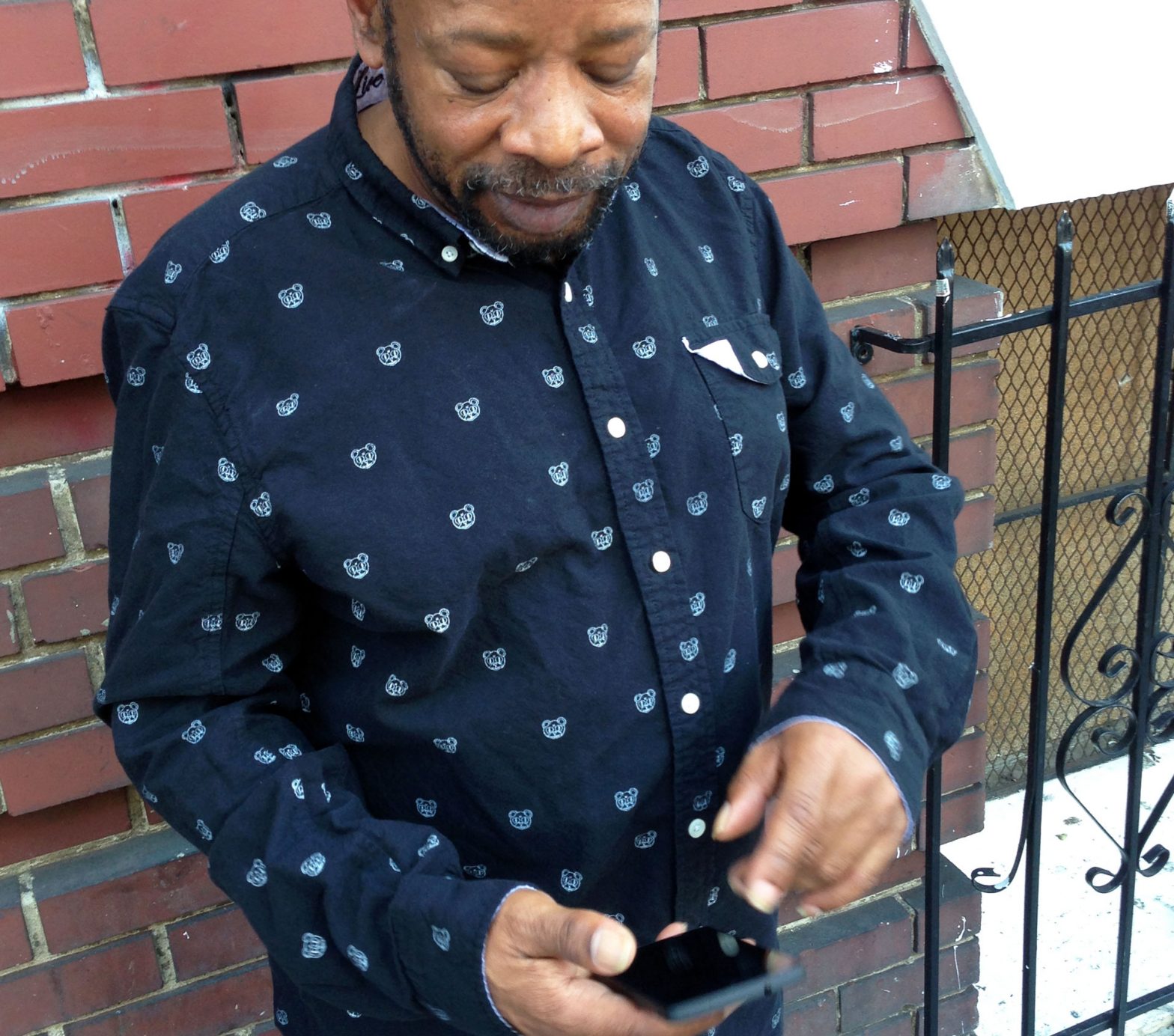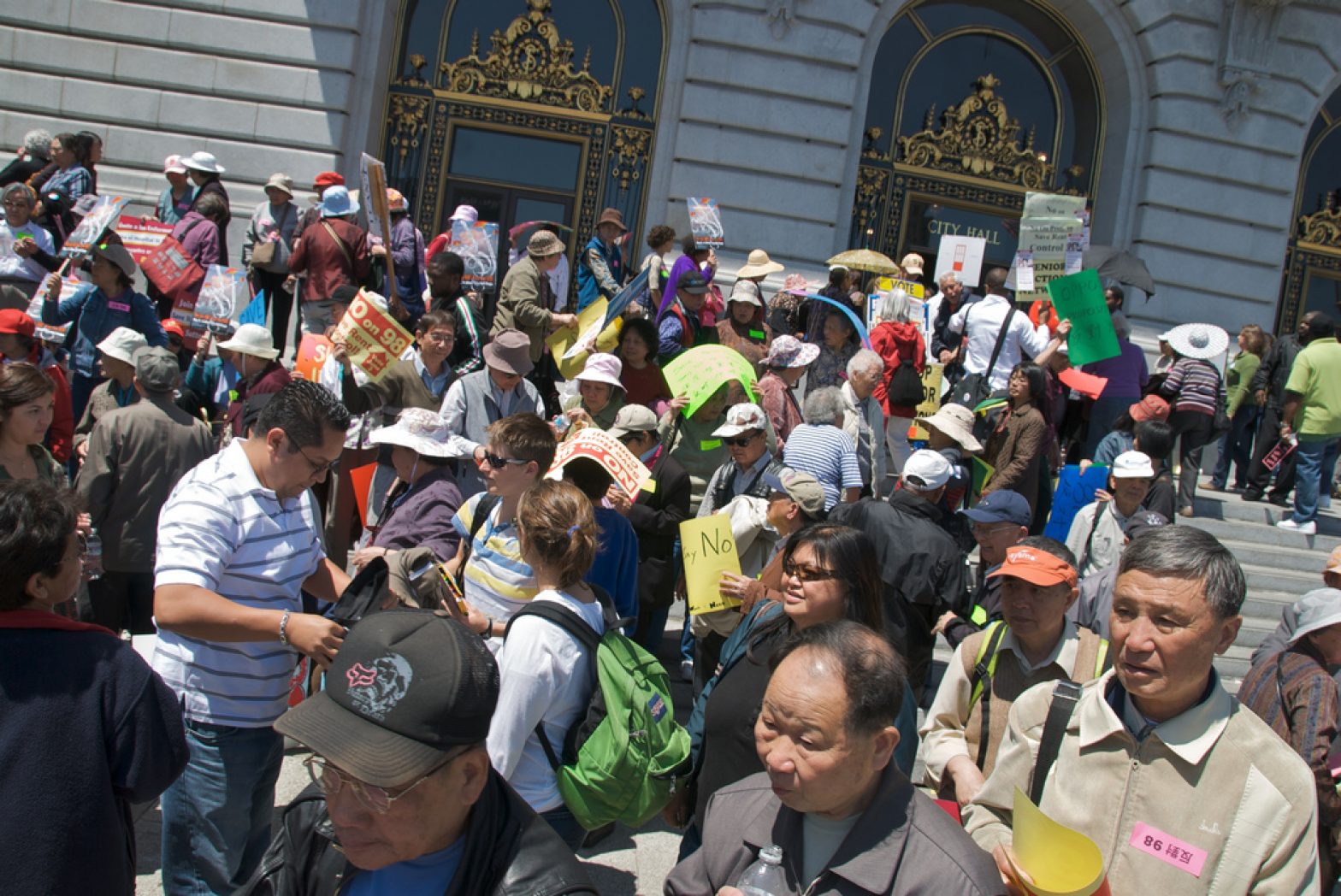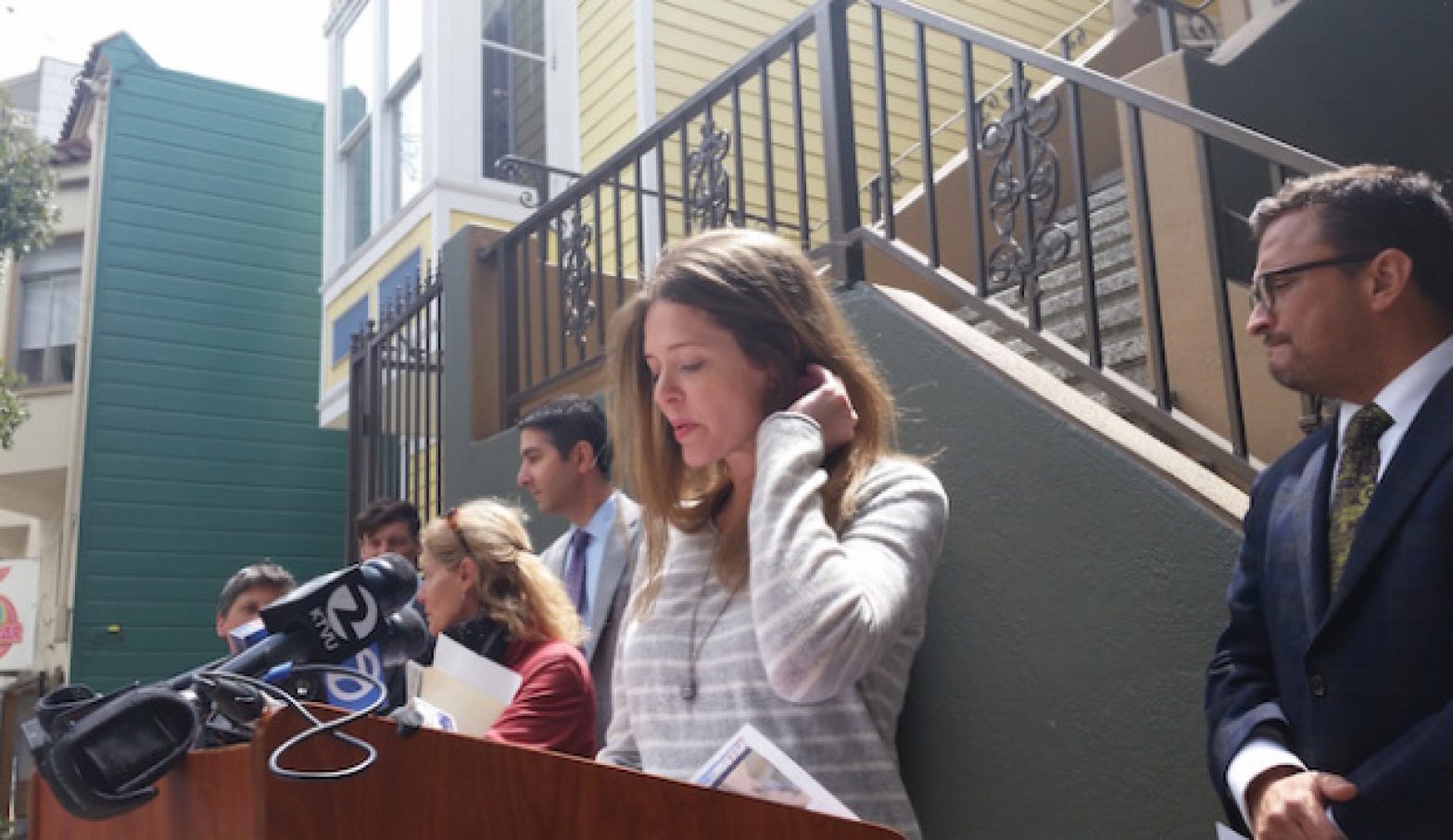News
Bay Area to Get Second-Largest Bike-Share System in US
By Patricia Yollin and Bryan Goebel, KQED News Fix
Bay Area transportation officials have approved a contract to expand Bay Area Bike Share from a pilot of 700 bikes to a permanent program of 7,000 bikes, which will make it the second-largest bike-share system in the United States. “In just an incredible blink of an eye, I don’t think you’ll be able to remember the days when bike share wasn’t a part of the urban fabric of all of these cities,” said Jay Walder, the CEO of Motivate and former head of the Metropolitan Transportation Authority in New York. Read the complete story at KQED News Fix.
